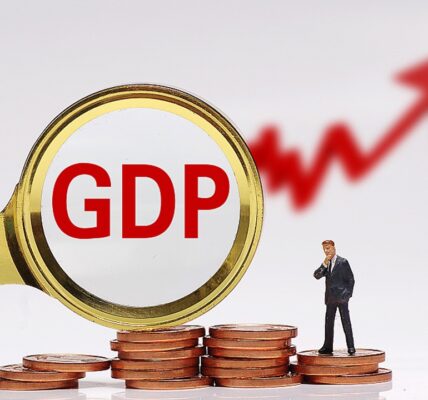Canada’s in a recession and has been for quite some time, says economist Lars Osberg.
Perhaps not a true recession, according to the standard definition that requires two consecutive quarters of negative gross domestic product (GDP) growth, the professor at Dalhousie University said. The Canadian economy in the second quarter grew above forecasts at 2.1 per cent, before dropping to one per cent in the third quarter.
But Osberg said a recession is where we’d be if not for the country’s historic population growth. Canada in 2023 recorded its fastest population boom in 66 years, increasing by 1.3 million people, or 3.2 per cent, the vast majority of which came from immigration.
All those new residents are buying the basics in life and boosting consumption by enough to mask a struggling economy, he said.
“When you have population growth at three per cent a year, that’s a lot of people who are adding to aggregate demand,” he said.
The real measuring stick of a country’s economy, Osberg said, is real GDP per capita, an economy’s production per person. Canada’s real GDP per capita in the third quarter declined for the sixth consecutive quarter, falling by 0.4 per cent.
The unemployment rate in November rose to 6.8 per cent, up one percentage point from the same time last year.
“In terms of GDP per capita, we’ve been in a recession for some time now and the increase in the unemployment rate reflects that,” Osberg said.
He’s not the only one sounding the alarm bells.
Former Bank of Canada governor Stephen Poloz in December said Canada is in a recession. Like Osberg, he said the economy’s weakness has been masked by strong population growth.
Poloz said consumers have suffered a 30 per cent increase in the cost of living following the recent inflationary period, which has led to reduced spending. Inflation has also fallen faster than predicted, which he said only happens during a recession.
Economist David Rosenberg recently pointed out that Canada’s economy would have been in the hole last year without government stimulus.
“The government sector bailed out the national economy in Q3 with a huge 4.8 per cent annualized spending expansion,” he said in his Early Morning with Dave newsletter last month. “Strip that out, and real GDP declined at a 0.3 per cent annual rate. Not a good look.”
Rosenberg also highlighted the country’s sixth consecutive slide in real GDP per capita.
“Only one other time in recorded history has Canada’s real GDP per capita decayed sequentially for six quarters, and it was during the 1981-82 recession — this measure has also been negative in eight out of the last nine quarters. Real per capita GDP is now down 1.4 per cent on a year-over-year basis and lower than it was in the spring of 2017,” he said.





